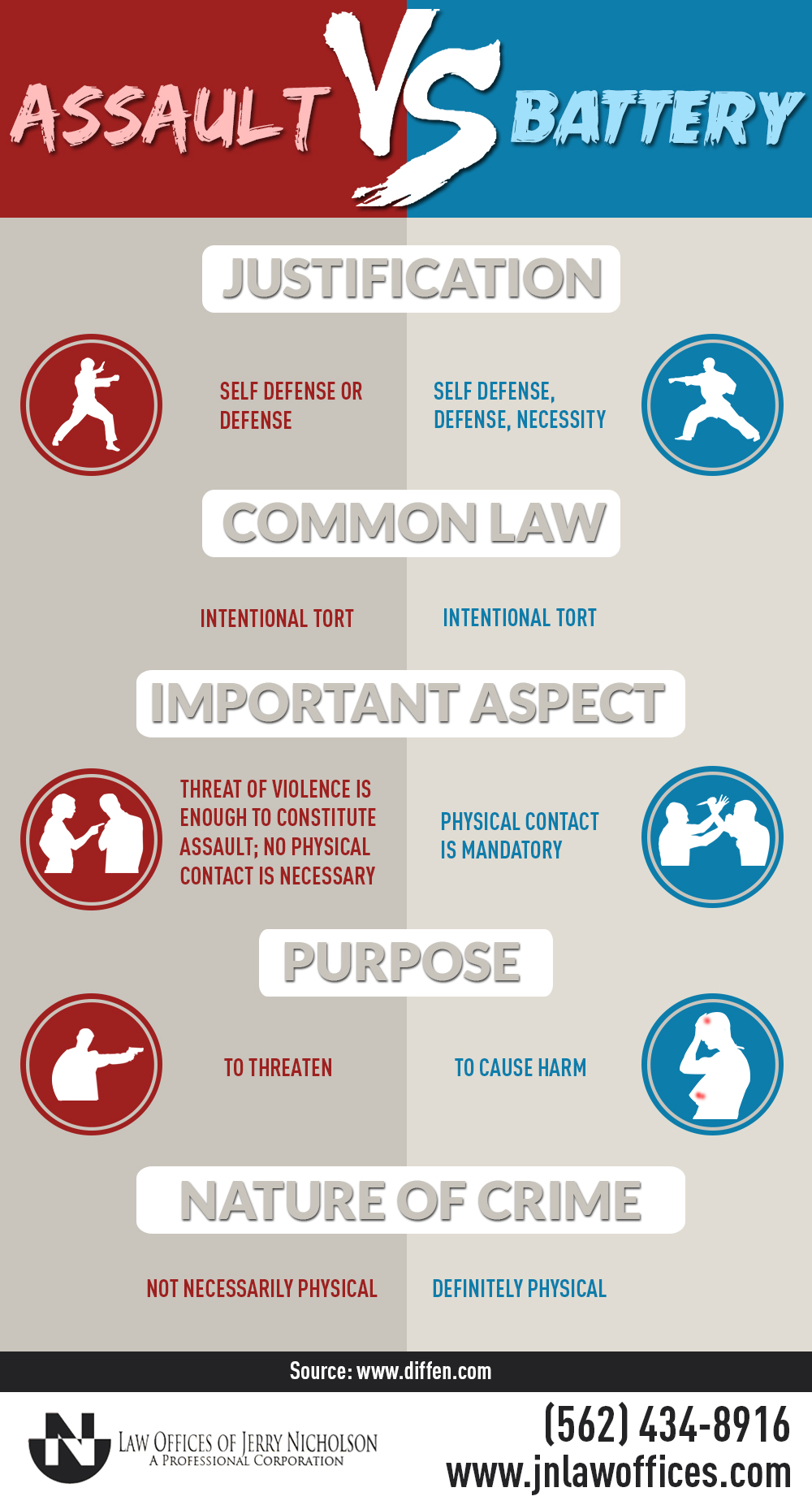Do you know the legal difference between assault and battery? These are two different crimes according to our assault and battery attorneys. The following infographic explains the crimes based on the law. While to be charged with battery, you must make physical contact, the threat of that contact is enough to be charged with assault. Follow this chart provided by our criminal defense lawyers and see if your rights have been violated.
Infographic – Assault VS. Battery
- Post last modified:January 29, 2025



